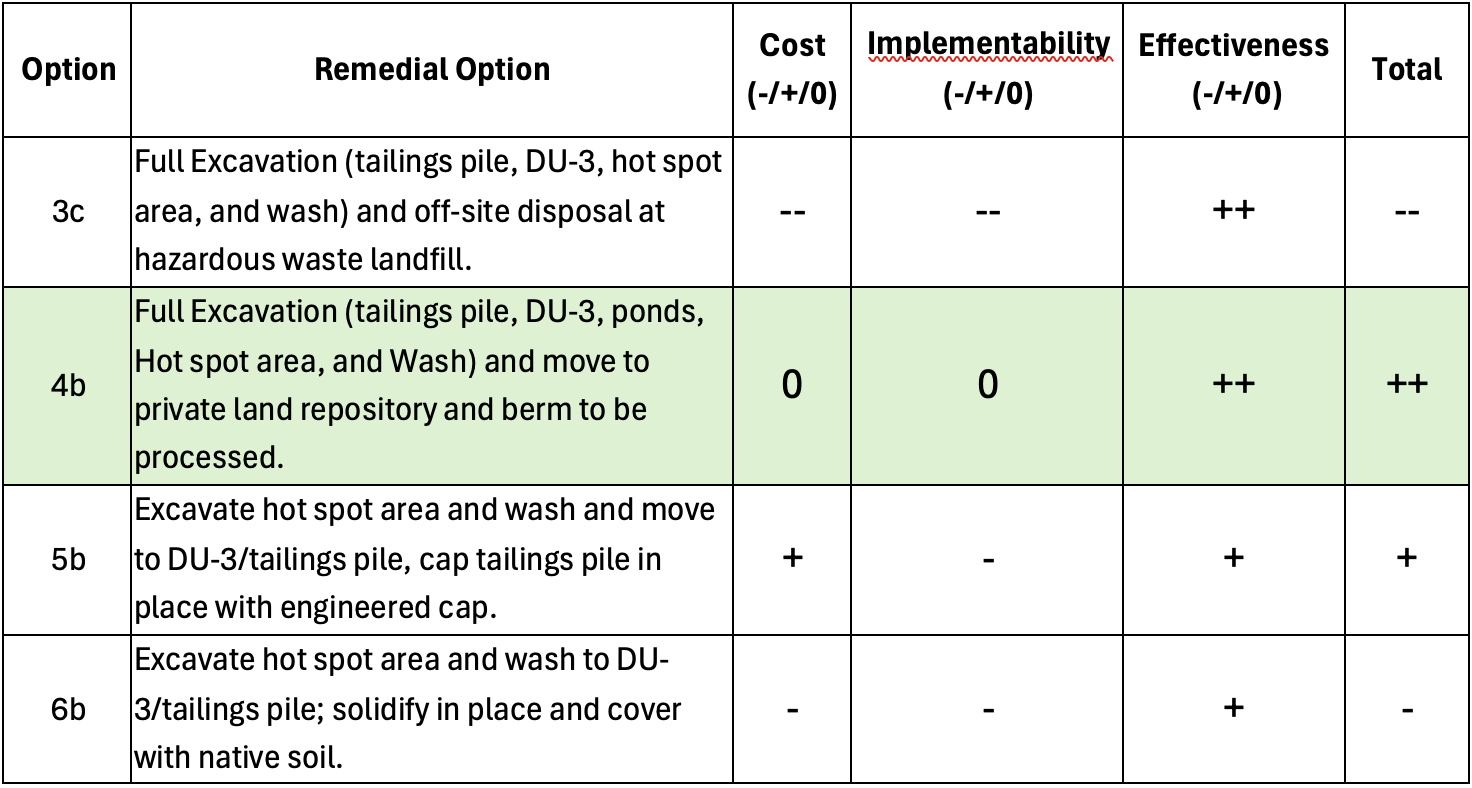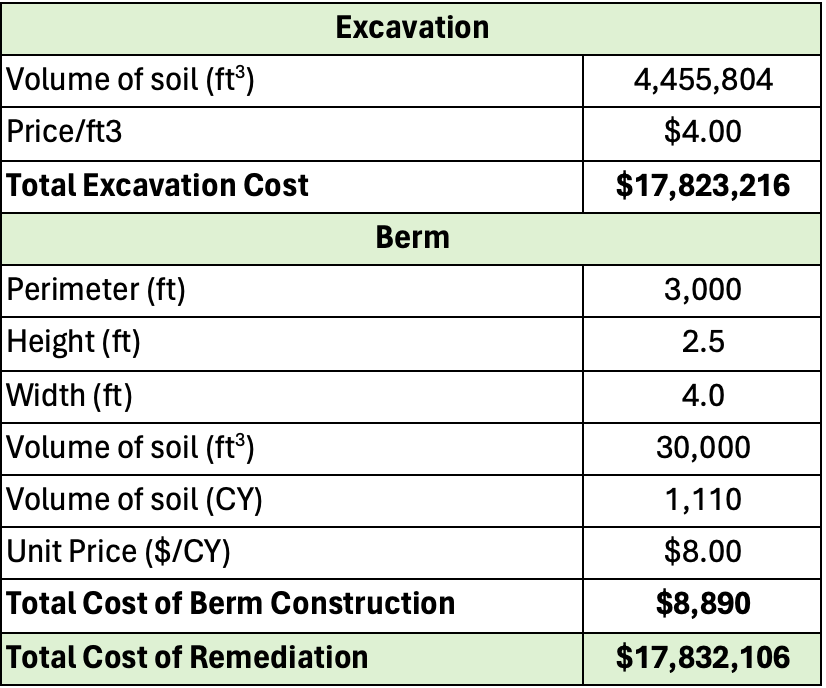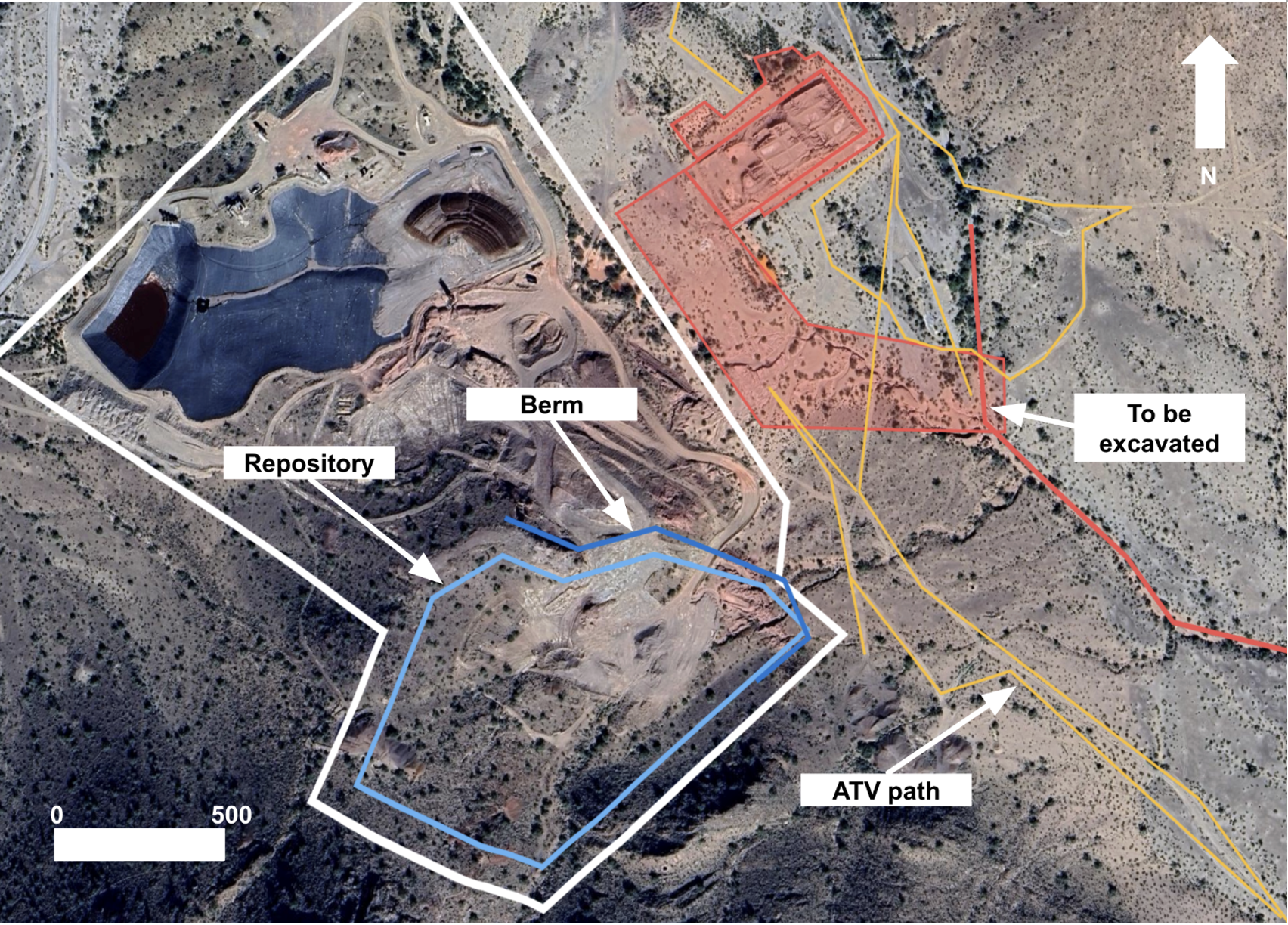

A conceptual site model was developed to demonstrate the contaminant sources and exposure pathways to humans and ecological groups. The Coceptual Site Model is shown below.

Fig 1. CSM
The remediation design alternatives for this site are selected based on
their ability to accomplish the Remedial Action Objectives (RAOs). The
background information and site visit show the chemicals of concern (COCs) are
lead and arsenic. As a result, the RAOs target minimizing COC concentrations to
reduce human and environmental harm due to exposure to lead and arsenic and
reduce the migration of contaminated soils.
The RAOs for this site are the
following:
· Eliminate migration of contaminants in public land.
· Reduce direct contact with contaminated soil/water on public land.
· Reduce
concentrations of COCs in DU-1, DU-2, DU-3 to AZSRS non-residential standards.
These RAOs were used in the screening of remedial technologies and
development of remedial alternatives.
An alternative that did not meet the RAOs was automatically not considered for the final design. The table below displays the alternatives that met the RAOs, these options were considered for the preferred alternative.
Table 1. Sub-matrix with alternatives meeting RAOs

After each alternative was scored in the decision matrix,
the alternative with the highest score was selected as the preferred
alternative, given that it met the RAOs. Option 4b had the highest score of
“++” and meets all RAOs for the site.
The estimated cost of
the remediation alternative is displayed in Table 2 below which includes excavation
and berm construction.
Table 2. Cost

Figure 1 below shows a potential location of the private land repository and berm that will contain the soil and all areas of excavation. A location for sourcing clean soil for the berm is assumed to be found on the existing private land.

Fig 1. Potential private land repository layout
created with
Web Design Software .